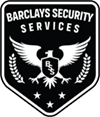
Summary
Access control systems (like keycards, biometric scanners, and remote monitoring) offer automation and 24/7 entry tracking. Physical guards provide human judgment, real-time threat response, and visible deterrence. This blog compares both to help Canadian businesses choose the right fit or hybrid-based on their risk level, budget, and compliance needs.
Access Control Systems vs. Physical Guards: Which Offers Better Business Security?
Introduction: The Modern Canadian Security Dilemma
As a business owner in Canada, choosing between access control systems and physical security guards isn’t just about preference—it’s about risk management, cost efficiency, and operational continuity. From downtown Toronto office towers to industrial yards in Brampton, every site has different vulnerabilities.
Let’s break down the pros and cons of both security solutions, and why more businesses are now leaning toward hybrid models.
What Are Access Control Systems?
These are tech-driven tools used to regulate who can enter or exit a property. Common examples include:
- Keycard or fob systems
- Biometric readers (fingerprint or facial recognition)
- PIN-based keypads
- Cloud-based or mobile-access solutions
Access control systems are automated, fast, and leave a digital record of every entry, making them excellent for audits and investigations.
My take: In low-risk environments, like co-working offices or supply warehouses, I’ve seen access control reduce staffing costs without sacrificing visibility.
What Do Physical Security Guards Offer?
Security guards provide a human layer of defense. Their value goes beyond presence:
- On-the-spot threat assessment
- De-escalation skills in tense situations
- Ability to identify non-technical threats (suspicious behavior, social engineering, etc.)
- Support for emergencies: fires, medical, alarms
Personal insight: I once helped deploy guards at a retail plaza where high-end goods were being targeted. Just the guard presence dropped theft attempts by 80% within the first two weeks.
Pros and Cons Breakdown
Access Control Systems
Pros:
- 24/7 automated control
- Scalable for growing businesses
- Lower long-term labor costs
- Digital audit trail
Cons:
- Vulnerable to hacking or device failure
- No real-time response
- Can be bypassed with stolen credentials
Physical Guards
Pros:
- Human decision-making and presence
- Deterrence against crime
- Flexible on-ground response
Cons:
- Higher recurring costs (salaries, scheduling)
- Subject to fatigue, distraction
- Coverage limited by shift hours
The Hybrid Approach: Best of Both Worlds
More businesses in the GTA and across Canada are combining both:
- Access systems for entry management
- Guards for mobile patrols, incident response, and after-hours coverage
This dual-layer setup reduces risk from both cyber and physical threats.
“A fingerprint reader won’t help if someone slips through a tailgating entry. But a trained guard will.” — Barclays Ops Team
Why Barclays Security Services Recommends Hybrid Security
At Barclays Security Services, we assess each client’s site based on:
- Crime rates and neighborhood risk factors
- Hours of operation
- Existing infrastructure and entry points
We then tailor a hybrid security blueprint that might include:
- Access systems with failover alerts
- Live guard patrols and CCTV support
- Visitor verification and lockdown protocols
Whether you’re running a logistics site, luxury boutique, or condo tower — we help you find the most efficient security strategy.
FAQs (Answer Engine Optimized)
Q1: Is access control enough without security guards?
In low-risk environments, it can be. But in high-risk or high-traffic settings, combining both is safer.
Q2: Are security guards more expensive than access systems?
Generally yes, due to staffing. But guards can prevent high-value losses, making them cost-effective over time.
Q3: Can I upgrade my current system to a hybrid model?
Absolutely. Barclays specializes in scaling up existing setups to include live patrol support.
Q4: Do businesses need to meet any legal requirements for access systems in Canada?
Yes, especially in regulated sectors (healthcare, cannabis, finance). We ensure compliance is built-in.
Final Thoughts: Choose Security That Works, Not Just What Looks Good
Security isn’t about choosing gadgets over people—it’s about combining strengths. At Barclays, we help Canadian businesses build systems that deter, detect, and respond.
Want a free site assessment?
Visit barclayssecurityservices.com and let’s secure your future, together.
